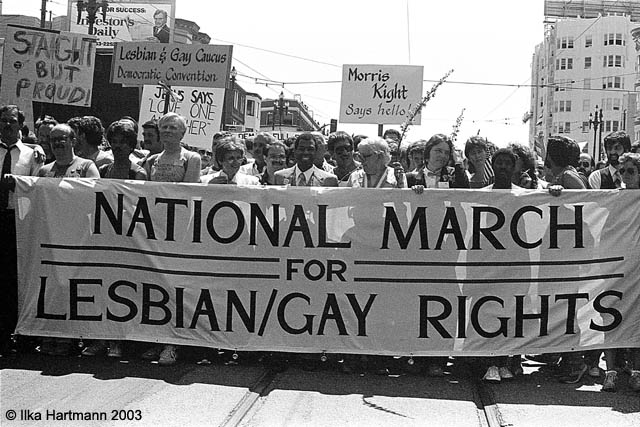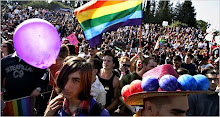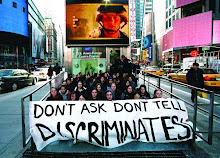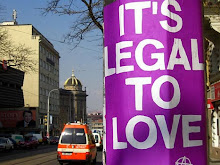The approach of the situation that was researched for a current event was the “Don’t ask, Don’t tell” policy which prohibits Gays and Lesbians that want to serve in the army are allowed to, if they do not tell people that they are gay or lesbian. But, if someone finds out that they are, they are kicked out of the military immediately. The two obvious different perspectives were people that agreed with this policy and people that disagreed with this policy.
First off, the background of this policy came in 1993 from Clinton while he was serving as president. In the article, “Don’t ask, Don’t tell” turns 15, it says, “It was 15 years ago, Tuesday, that President Clinton rolled out the policy that came to be known as "Don't Ask, Don't Tell," which relaxed the long-standing bar against gay men and women serving in the U.S. military. While the move was initially hailed as progress for the rights of gays in the military”. This describes what the “Don’t ask, Don’t tell” policy was made for because before 1993, Gays and Lesbians did not have the right to serve in the military. "Don’t ask, Don’t tell" policy is that about 12,000 service members have been booted from the military since the law took effect, including dozens of Arabic speakers whose skills are particularly prized by the military since the advent of the war on terror. This shows that because people talk and tell about their sexual orientation, they get kicked out of the military. Now in current events, they talk about if this law should be changed or not. The agreeing view side that agrees that the law should be changed for this subject says that by kicking someone out, based on their sexual preference, it is wrong and unjust. The opposing side that thinks that this law should not be changed thinks that if this law is changed, things in the army will get out of control.
Starting off with the opposing view side of this issue, in the article, it talks about this women that is named Ms. Elaine Donnelly (President, Center For Military Readiness) she thinks that changing the current policy would hurt the morale of the troops so, she strongly disagrees with changing the law. She says that if this law changes, soldiers will not re-enlist if the law is repealed. She also talks about how this is not a religious issue and she thinks that it’s very rational and not prejudice to have the "Don’t ask, Don’t tell policy. Ms. Donelly says, 'The weakest argument going, because of racial separation and prejudice was irrational and it still is. The military took it on head-on because it was irrational and we needed those good soldiers who are already in the military; they just had to attack the prejudice. However, separation of men and women in the military, in areas involving sexual privacy is not only rational; it is desirable and certainly customary in the civilian world as well as the military. The two cannot be equated. They are not the same".
With the agreeing view point of this issue, the article named U.S. Government reconsiders “Don’t ask, Don’t tell” policy for the military. This article talked about how Obama wants to change the law of "Don’t ask, Don’t tell" policy and they want to change this law because many people are losing their job to serve in the army so in this article, the view point is on the side where they agree with changing the "Don’t ask, Don’t tell" Policy. The author of the article says, “There is a school of thought which believes should the United States military allow its homosexual members to serve openly it will somehow deteriorate the long standing moral fibers of the organization. I have a hard time with this logic and I have had discussions with various service members regarding the moral codes of the United States military and they are so grossly outdated I don't know if anyone in this day and age can maintain them. You have a younger generation of soldiers trying to live up to codes set by men who existed in a totally different time, place and society".
Thursday, February 11, 2010
Subscribe to:
Post Comments (Atom)





















I think that for the beginning of this post you should probably cut out most of the information because that information is supposed to be in the background analytical essay. You should really start your essay when you start talkign about the current events because that is the topic of the analytical essay. Once you got there you had a lot of good information and articles to help prove your points. It could have used a little more analysis, however overall it was good. Last thing I would do is try to re-read your essay because there are some grammer mistakes.
ReplyDeleteYou are stating the obvious for some of your analysis - dig deeper. After each quote, make sure to do analysis. you are not doing this for all of your quotes. Also, re-read your essays because you have some grammatical errors.
ReplyDelete